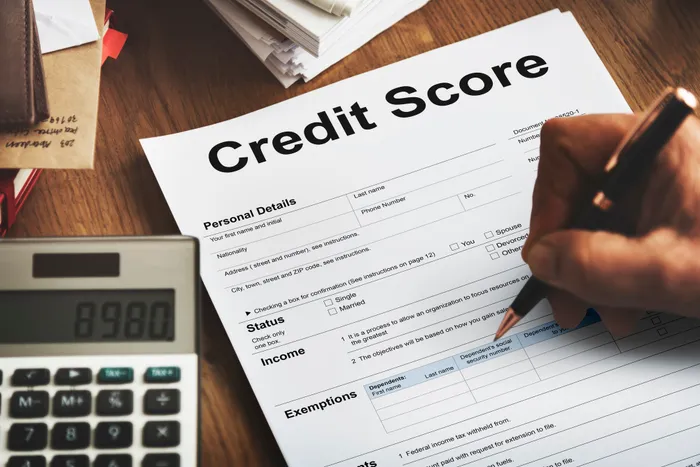How to boost your credit score and save on borrowing

Discover how to take control of your financial future by mastering your credit score. Learn essential tips and strategies to improve your creditworthiness and reduce borrowing costs.
Image: Rawpixel/Freepik
South Africans are significantly indebted, with a large portion of their monthly income going towards servicing debt. This means that for every R100 of disposable income, South Africans currently owe R62.70.
We’ve observed a combination of high interest rates, rising living costs, and slow income growth driving the high levels of indebtedness. This has led to a notable increase in overdue debt payments, particularly in unsecured loans and credit cards, as the average household debt-to-disposable income ratio stands at 62.7% as of the first quarter of 2025.
What your credit score influences
Your credit score is a three-digit number that reflects how reliably you manage your credit obligations. Lenders use it to determine whether you qualify for credit and what interest rates you will be charged. A higher score means you are seen as a lower-risk borrower, which often results in lower borrowing costs and greater access to credit.
Understanding your credit score is one of the most powerful steps you can take towards financial confidence. It does not just affect whether you can borrow money, but also the cost of that borrowing. Small, positive changes in your financial habits can make a big difference over time.
Your credit score, along with your detailed credit report, is used for a variety of financial and contractual decisions beyond just home loans and car finance, including rental applications, service contracts (like cellphone contracts), and even in some employment background checks.
Beware of BNPL – it is still credit
Given the level of indebtedness, it is perhaps unsurprising that many are turning to Buy Now, Pay Later (BNPL) services. A study from late 2024 showed that 74% of South Africans are aware of BNPL, and 50% have used the service more than once in the past year.
The primary concern with BNPL in South Africa is its regulatory void. Unlike traditional credit products, BNPL services often operate outside the protection of the National Credit Act (NCA). Added to this is the fact that BNPL is increasingly being used for essential items such as groceries, utilities, and healthcare, not just for discretionary purchases, indicating a growing dependency on this form of credit for daily living expenses.
BNPL may feel less formal than a credit card or personal loan, but it still counts as credit. Consumers should treat these commitments with the same discipline, track what they owe, keep payments up to date, and avoid stacking multiple agreements.
You can improve your credit score
Change your habits, and you can change your credit score.
The key factors that influence your score are:
- Payment history: Paying your accounts on time, every month, has the biggest positive impact. Late or missed payments will severely damage your score.
- Credit utilisation: Aim to use less than 30% of your available credit limit.
- Length of credit history: The longer you have a positive credit history, the better.
- New credit applications: Applying for too many loans or credit cards in a short period can lower your score, so apply only when you truly need to.
- Debt review or judgments: Public records of debt review or judgments against you will have a serious and long-lasting negative impact on your score.
- Check your report regularly: You are entitled to one free credit report per year from credit bureaus in South Africa, such as TransUnion, Experian, and Compuscan. Reviewing it can help you spot errors or fraudulent activity early.
Mastering your credit score is less about quick fixes and more about consistent, responsible behaviour. By understanding how credit works and applying simple habits, South Africans can reduce borrowing costs and build long-term financial resilience.
* Manyanya is the spokesperson at Wonga.
PERSONAL FINANCE